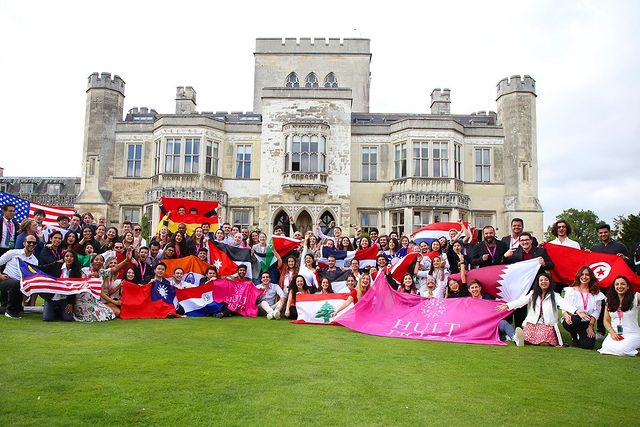6 Lessons from HULT
Updated October 2, 2021 | 4 min read
This year I had the honor to represent Morocco in the finals of the biggest accelerator in the world: Hult Prize that took place in Ashridge castle, London.

Throughout the 6 weeks program, I learned a lot of lessons about entrepreneurship, funding, and kicking off a startup.
0- Introduction
The Hult Prize is an annual, year-long competition that crowd-sources ideas from university level students after challenging them to solve a pressing social issue around topics such as food security, water access, energy, and education.
The Prize is a partnership between Hult International Business School and the United Nations Foundation. Former U.S. president Bill Clinton selects the challenge topic and announces the winner each September; The Hult Prize has been referred to as the "Nobel Prize for students" by Nobel laureate Muhammad Yunus.
1- Everything is possible
He who has a why to live can bear almost any how - Friedrich Nietzsche
The fact that from 300,000 participants at the start of the year, we have been selected as top 53 teams in the world, was already proof enough that with hard work and perseverance you can achieve anything.
Add to that, this international event has been organized during the global pandemic. And despite people flying from all over the world to the UK we managed to score 0 Covid cases during the whole 6 weeks (shout-out to the staff for their hard work).
So my first lesson is that everything is possible, "whatever you vividly imagine, ardently desire, sincerely believe, and enthusiastically act upon... must inevitably come to pass" - The compound effect.
2- Assumptions
When starting a new business we always have assumptions either about the problem, solution, market, or customer. Testing and validating those assumptions is where half of the work occurs.
The other half is the ability to pivot and change based on what we tested, or maybe completely change/ abandon the idea.
So no matter how great your product or service is, you need to listen to the market. Our mentor Mr.Scott Weiner always told us: "people are willing to pay for 2 reasons: you bring them more satisfaction or you remove a pain they are suffering from".
And even if what you are offering is fulfilling one of the reasons, there is one more question you need to validate: is it worth it?
3- Communication
There is one lesson I learned while pitching our startup to investors: Show me or it did not happen.
Having a great business is one thing, knowing how to communicate your value, impact and story is another thing. Without good communication (Marketing, Branding, Sales...) no business can succeed.
Good communication is:
- Short: Say it in a few words.
- Simple: easy language, no jargon.
- Stupid: A 5 years old should understand it.
4- Knowledge
We all heard that knowledge is power. But most of the time we limit ourselves because we don't have enough knowledge or skill set which is totally wrong.
First, everything is figure-out-able, all the masters of a certain domain started from zero and made it to the top, so can you!
Second, you don't need to do it all by yourself: A good businessman will find the right people to complete the tasks he can't do by himself.
So the real entrepreneur needs to always ask: what is the next thing that I need to know in order to move forward, and then he works on acquiring that knowledge.
5- Starts small
The one who tries to do everything at once ends up doing nothing. The best thing you can do as a startup is to start small and focus on the very next goal to achieve and target a tiny portion of the market at first, then each milestone will lead you to the next.
But if you tried to think about each step from the start you will probably do nothing and suffer from what's known as Analysis paralysis: inability to decide due to over-thinking a problem.
You can't connect the dots looking forward; you can only connect them looking backwards. So you have to trust that the dots will somehow connect in your future. - Steve jobs
6- A million dollar
At the beginning of the program, all the startups were motivated by the grand prize of 1 Million Dollars. But after arriving at the castle you can quickly realize that there is something way more important than this: People.
The experts we met there, the friends we made, the moments we lived together are irreplaceable. Human resources are the real treasure and I will happily say that I am part of the Hult prize family.
That's it, I hope you find the lessons I shared helpful, and I can't wait to remeet the community again!